The ILX is one of the most fuel-efficient Acura models. It's fast and comfortable to drive. You probably don't expect to hear sounds coming from your car while driving. But sometimes, cars, including the Acura ILX, can produce strange noises such as a hissing sound. Why does this happen, and how can you stop it? We consulted with the experts to shed light on this topic.
There are several reasons your car may produce a hissing sound, including:
- Overheated engine
- Leaking exhaust
- Faulty cooling system
- Faulty AC
Keep reading to know what causes your car to hiss and how to solve this problem. Included are other noises you should not ignore. In addition, you will find a cost estimate for the repairs to stop the noise.
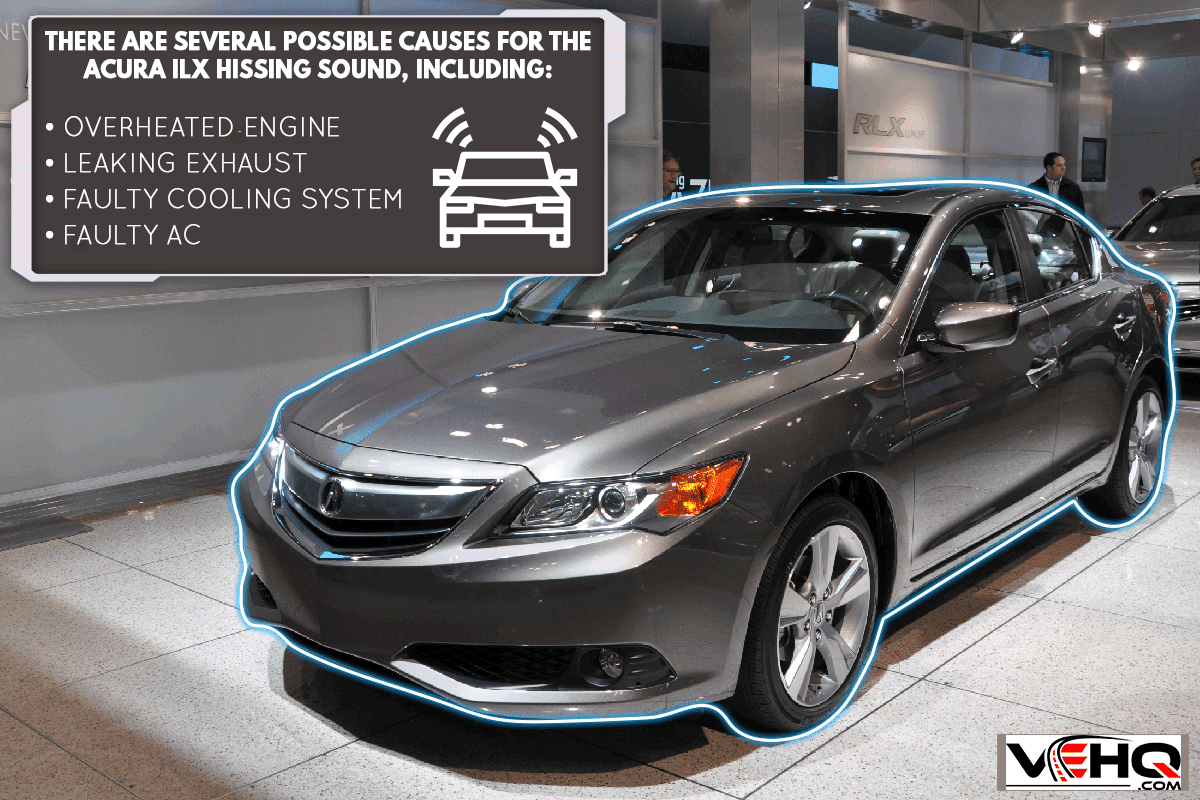
Reasons Your Acura ILX Is Hissing And How To Solve The Problem
It's normal for your car to produce unusual noises once in a while. But, when a persistent, annoying sound comes from your vehicle, you need to have it checked.
Hissing is one such sound that you need to watch out for. Whether you have heard it before or not, it may be a good idea to know what causes this sound and what to do about it. Find out more below:
Overheated Engine
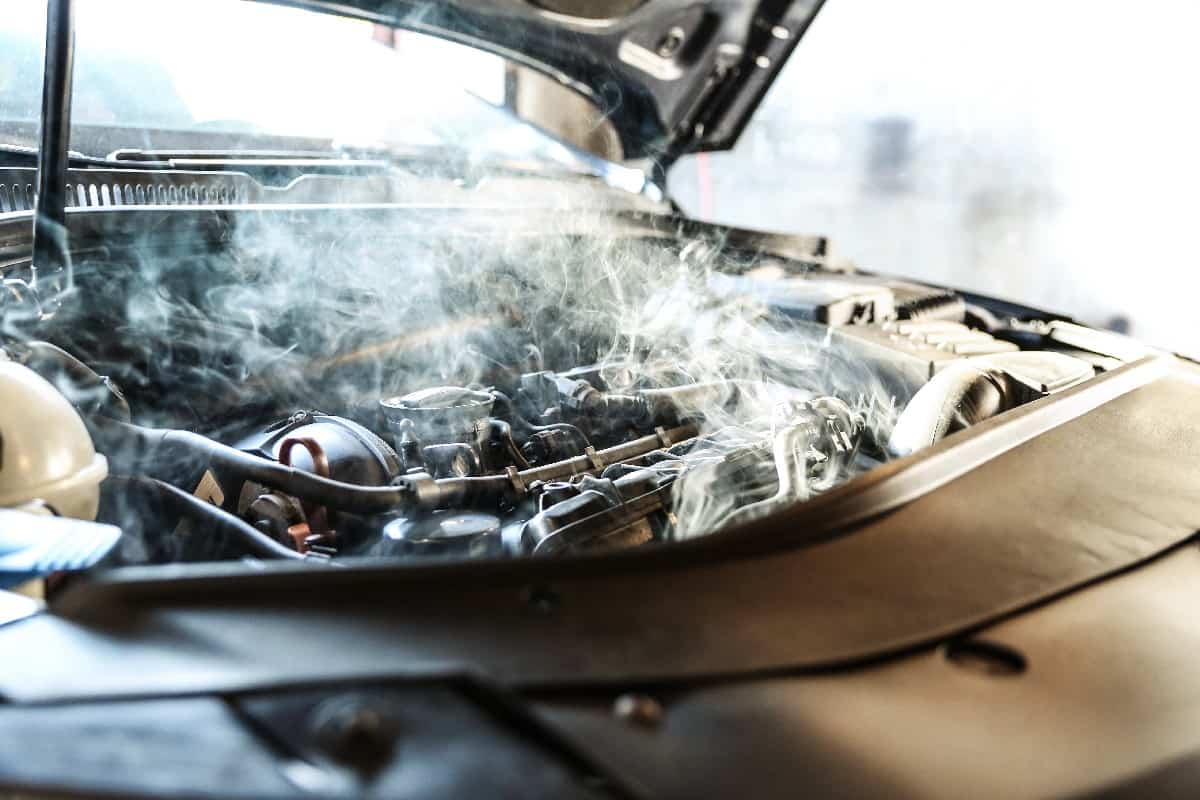
One of the reasons your car may produce a hissing sound is the engine overheating. You may not hear the sound while driving or when the car is running. However, you can hear the sound when you turn off your car.
Since the engine is hot, the liquids in the engine will sizzle, producing a hissing sound. If you check the front of your car, you will notice steam coming from under the hood. Be careful not to touch it, as it is hot and may burn you.
Find this gasket and bolt set suitable for an Acura ILX on Amazon.
Cars normally overheat when there is a problem with the cooling system that does not release heat from the engine. It could be due to a blockage or leak in the system. It could also be due to wear and tear in other parts of the cooling system, including the water pump, gaskets, or rubber hoses.
Find this water pump kit suitable for an Acura ILX on Amazon.
Take your car immediately to a mechanic. The problem might be minor, only requiring a few dollars to fix the problem. If you delay, the damage might increase, costing you hundreds or even thousands of dollars in repairs.
Leaking Exhaust
Exhausts are the path through which harmful gases from your car get out. A damaged manifold or pipe in the exhaust is not good.
These gases leak through the pipe's cracks, holes, or openings, producing a hissing sound. The sound is even louder when you start your engine or accelerate.
You may search for the leak, seal it, or take it to a mechanic. Epoxy is best for sealing cracks and holes. But if the exhaust is badly damaged or worn, you might have to replace it.
Check out this Epoxy twin pack on Amazon.
Damaged Cooling System
As earlier mentioned, a hissing sound can come from your cooling system, which means some components in the system are damaged.
This is may be due to damaged hoses made from flexible rubber. They wear out with time, leading to fluid leaks. The hissing sound could also be due to a vacuum leak. This happens when a damaged hose pulls in the air causing the noise.
The hoses can be repaired, but the solution will most likely be temporary. You should replace them. Hoses in your car's cooling system can generally last up to five years. So hoses nearing the end of their lifespan are the ones that will give you a problem.
Faulty AC
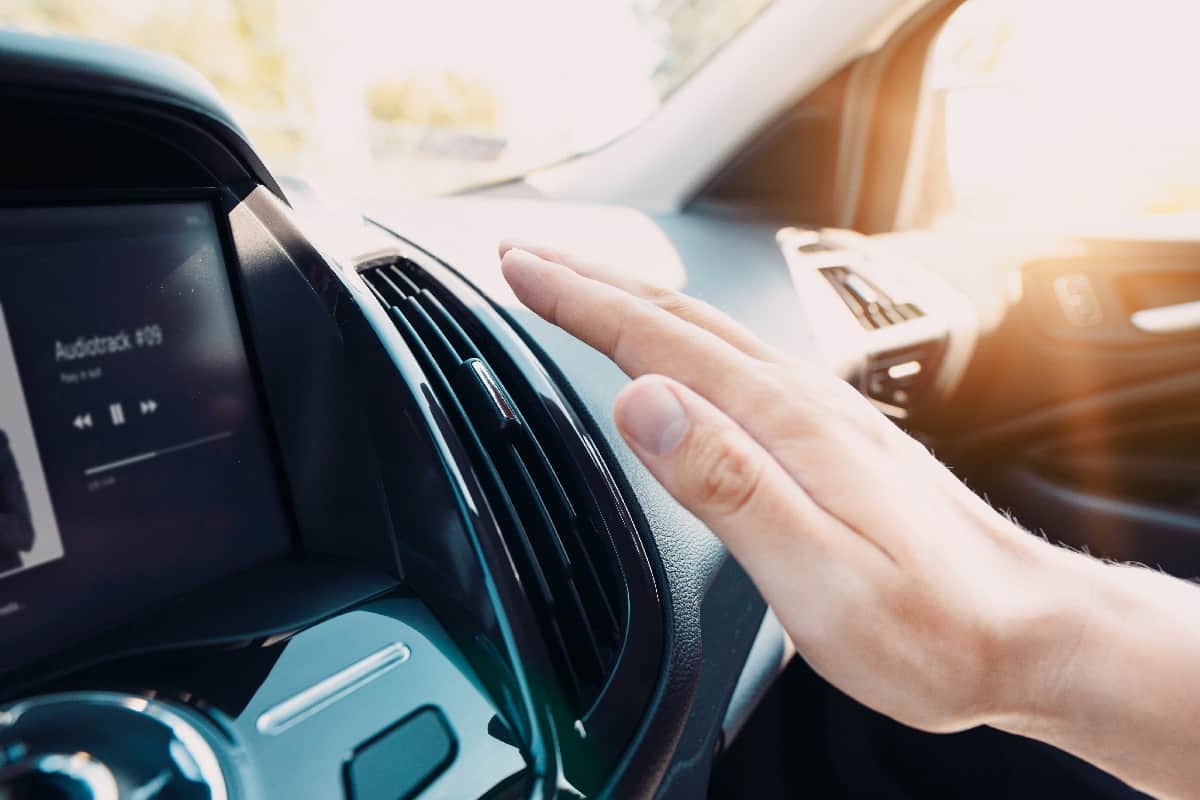
If there's an issue with your car's AC, it will produce a hissing sound. It may be due to refrigerant leaking, a worn-out clutch, faulty compressors, or a leaking internal valve. The following are the causes your AC produces unusual sounds:
Leaking Refrigerant
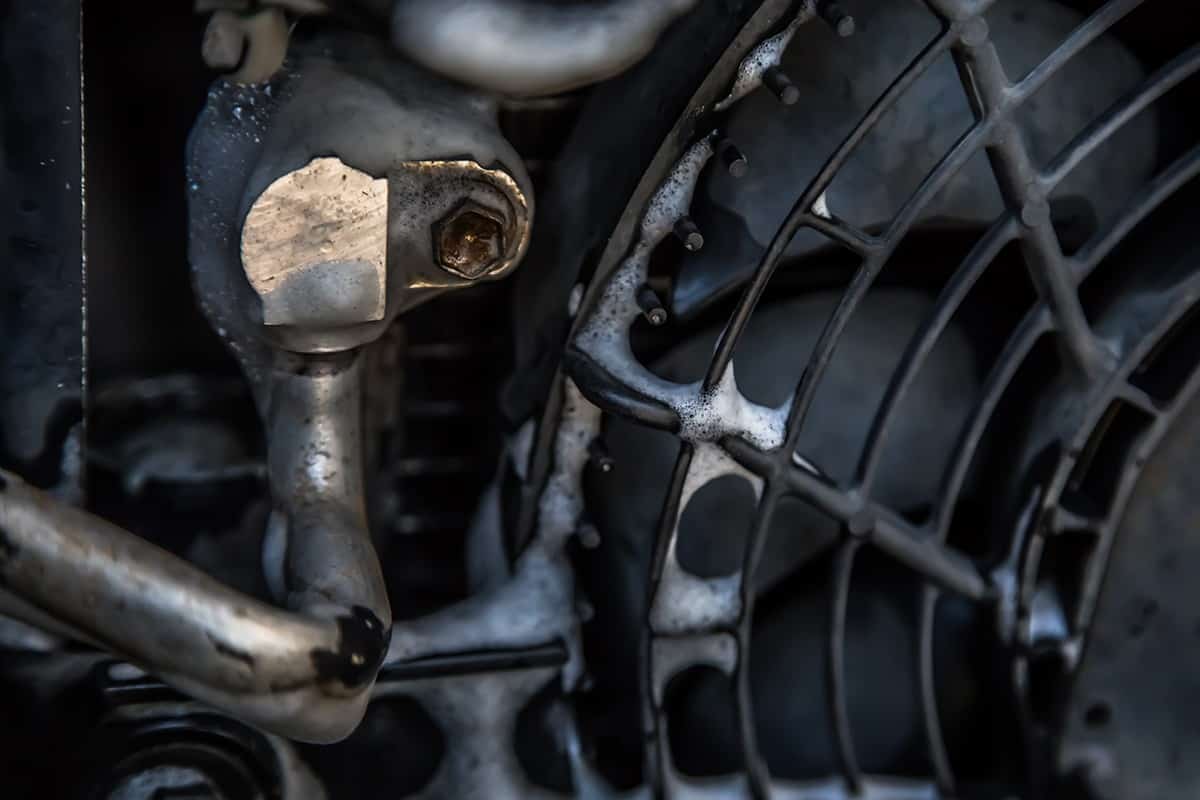
Gaskets, hoses, O-rings, and metal connections in your car's AC wear and corrode over time. Thus, the refrigerant gas under high pressure will escape and produce a hissing sound.
As it leaks, the AC loses refrigerant, which might cause more damage to the AC system. Moreover, refrigerant gas can be dangerous to your health when inhaled.
Internal Valve Leak
Another way the refrigerant from your car's AC can leak is when the internal valves of the compressor are worn. These valves are responsible for controlling the pressurization of the refrigerant. Replacing a worn valve will stop the noise.
Faulty Compressor
Find this compressor suitable for Acura models on Amazon.
Your compressor may hiss if the pressure inside is very high. If the hissing sound turns into a shrieking noise, turn off the AC.
Depending on how extensive the damage is to the compressor, your mechanic may suggest repairs or replacement. Don't forget—the compressor is the most expensive part of the AC to repair.
Other Noises Coming From Your Car You Should Not Ignore
In addition to the hissing sound, there are other noises that you should not ignore. These sounds are a warning of a bigger problem. You should take your car to a qualified mechanic who can diagnose the reason behind these noises.
Some of these sounds include:
Squealing
A squealing sound will most likely come from a faulty braking system. You should this seriously because it is that part of your car responsible for ensuring your safety while on the road. The noise normally means your brake pads are worn out.
You can find these brake pads on Amazon.
You should have your brakes and brake pad checked. This can prevent the damage from extending to the rotors.
Check out these brake rotors suitable for Acura ILX on Amazon.
Ticking
Another noise you should be aware is a ticking sound from the engine. This means there is a problem with your oil system. The oil level is either low, or the engine cannot maintain the right oil pressure.
Stop your car and check the oil level when you hear this sound. After that, take your vehicle to a mechanic to check the oil pressure and handle the necessary repairs.
Rattling
Rattling is another sound you should not ignore. It's a sign some parts of your car are failing, such as loose or missing bolts. However, a faulty or damaged exhaust pipe is one of the most common causes of rattling from under your car.
If the rattle is from the engine, your water pump is likely damaged. A rattle from your car's interior could mean loose or missing screws or window channels that are worn out.
Grinding Or Humming
A grinding sound means that some parts of your car are failing due to wear and tear. If the grinding happens when you apply the brakes, the brake pads or rotor are probably worn.
A humming sound under the car could mean transmission trouble, wheel bearings damage, or a worn differential.
Cost Of Fixing The Hissing Sound In Your Acura ILX
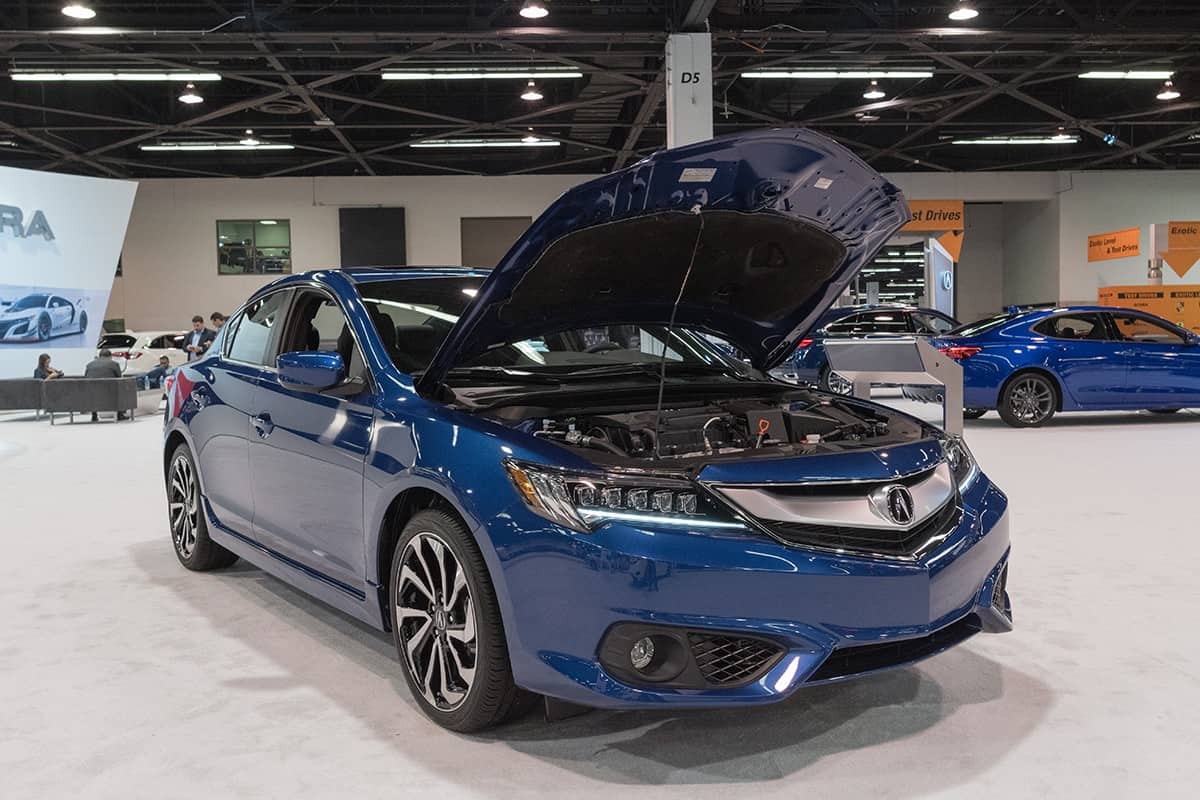
To replace the water pump in Acura models, expect to pay between $375 to $787 for both parts and labor. The cost of gaskets for the Acura ILX ranges from $1078 to $1360, and around $700 for the labor to have it replaced.
The radiator hose for an Acura ILX costs around $83, while the labor to replace it costs around $161.
Labor costs to replace the compressor can be expensive, ranging from $917 to $1057, while the parts are priced from $286 to $361. The costs may differ depending on your location and the auto shop where you have the repairs done.
In Closing
Any type of sound coming from your car, including hisses, can be annoying. You should listen closely to any strange sounds that your car may produce. They are signs that something is wrong.
Hissing sounds are the most common, and they indicate that there could be a problem with your engine, cooling system, AC, or exhaust.
Repairs can either be cheap or expensive, depending on the faulty part. Repairs on the gasket and compressor are relatively high compared to repairing the radiator hose.
Below are more of our posts that may interest you:
Car Sounds Like Air Escaping Heres What Hissing Sounds Could Mean






